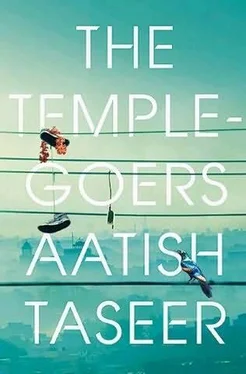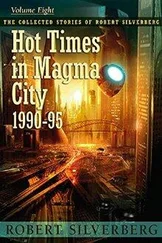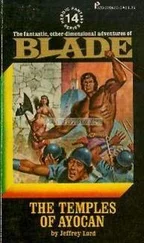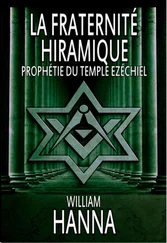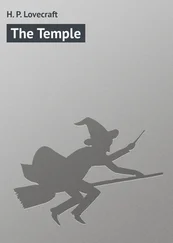‘Why, my student!’ Zafar replied.
‘Go on,’ the policeman yawned.
We slipped through a foot-wide space between two barricades. We had walked only a few paces when the policeman said, ‘Ah, ah, through there.’
He rapped the wooden frame of a metal detector, which not only was not switched on but had its black wire coiled up in a heap next to it. We did as we were told. The young policeman smiled, then sniffed his fingers.
The enclosed area within the barricade was deserted. On our right was a covered arcade of sorts with shuttered shopfronts. The curving line of simple, cylindrical columns was covered in pink, white and blue bills. Their thin paper had turned soft in the rain and seemed about to slide off. Zafar, in his long black coat and white trousers, moved at a fast pace ahead of me, like a man running to catch a train. Everything was still and silent, muffled by the rain. Only the dull cries from within the city could still be heard. So deep and cinematic was this silence that neither Zafar nor I heard the sudden approach of a dark blue van with a red siren light and white letters painted on it. Even when we saw it, it seemed to be just another prop in the theatre of the morning. It screeched to a stop in front of Zafar and a small, stout policeman in olive green fell out, with a string of abuse ready on his lips. All of it was aimed at Zafar; he didn’t address one word to me; it was as if I wasn’t there. Zafar’s response was to assume a stance of high refinement. Speaking to him in his educated Urdu, he tried gently to reason with him, as though hoping to prevent a standard of decency from breaking down. ‘But listen, brother, we were permitted to cross the barrier by your colleague over there.’ We all turned around at the same time, but the man who had let us through had vanished and the barricade was unmanned. This failure at so crucial a moment gave the fat policeman his chance. His shiny face gleamed with satisfaction. ‘Now move, bastard,’ he said, reaching for the back of Zafar’s neck.
‘He’s had an operation!’ I screamed.
Zafar winced, then smiled.
The policeman now turned to me and said courteously, ‘I’m sorry, sir, but you can come and pick him up in a few hours at the station.’
‘But why are you arresting him?’
‘He’s crossed the police line, sir. It’s a routine arrest.’
‘But why…’
The policeman anticipated my question. ‘Sir, I’m very busy. Here is my card.’ He produced a visiting card with a gold police emblem on it. ‘T. N. Vohra. It has mobile too. Now, please go home. It’s not safe at this time.’
With this, he pushed his hand into Zafar’s, locking fingers with him, and led him into the blue van with its caged windows. Zafar stepped elegantly on to the footboard and sat down on a bench next to a young demonstrator with a sweaty, bloodied face. Just before the door closed, he said apologetically, ‘I shouldn’t have worn this.’ He ran his hand down the length of his black coat again. ‘It made me a target. This mistake won’t happen again. Please excuse the trouble I’ve caused.’
The van sped away, leaving me to walk back to the barricade. When I approached, the young policeman had reappeared to let me through.
Zafar was released at seven that evening. The fat policeman was right: it had been a routine arrest. The place to which they had taken him was a squat building with screened balconies, each level painted in two shades of orange. There were neem and peepal trees outside, motorbikes parked in the shade and a roaring street beyond. From a makeshift porch of white metal and green fibreglass, there hung a large blue and red sign which read: ‘Police Station, Lahori Gate’.
I’d never been in a police station before. I was surprised by the congenial, government office atmosphere, the fluorescent lighting, the potted plants, the simple sign that read: ‘Lock-up’. Releasing Zafar was no great task either. After my initial panic, and yes, a few wiped-away tears, Uttam came to pick me up. We drove to the station, and on the way I called my mother and Sanyogita, who both called Chamunda. At some point around mid-morning, after tea and breakfast in the car, a fixer of sorts showed up. He was not from Chamunda’s office – she couldn’t interfere with these things – but worked for a businessman. He was a man who ‘knew how to talk to the police’. He carried three mobile phones, had a Bluetooth piece in his ear and a weak handshake. Within minutes, he was joking with T. N. Vohra, and setting in motion the process by which Zafar would be released.
The day went by languidly and was spent mostly in the car, with occasional forays into the station. A mild winter sun burned away the rain. There was a fresh warm afternoon, then a fat orange sunset, and later the street hung in wisps of fog and bright kerosene lamps. In fact, Zafar’s arrest might have had something of the mood of a picnic or a long drive had it not been for one thing: Zafar, in the lock-up with some twenty other men, refused to sit down.
At first this gentle protest went unnoticed. Vohra’s sub-inspector tore around the room, prodding men with his stick, roughing up the ones he thought more guilty, but he didn’t touch Zafar. It was only after his second incursion into the room, some time around noon, when our arrivals at Vohra’s desk coincided, that the sub-inspector remarked that the old poet fellow had been standing in the same spot for nearly five hours. Vohra laughed at the genteel manners of people like this. I was concerned because of Zafar’s operation. Vohra nodded, promising to send in a chair for him. But at two p.m., Zafar had still refused to sit down. I was sent in to talk to him. I saw him leaning lightly against the wall, an empty chair next to him and dozens on the floor around, like nursery school children. He glided up to the lock-up’s bars when he saw me, reassuring me that he was fine. When I implored him to sit down, told him it would be a long wait, he smiled mysteriously and said he was fine standing.
By mid-afternoon, Zafar’s protest had become something of a religious event in the station, and everyone was perturbed. Vohra said he could not release him until the demonstration in the old city was over, but begged me, seeing now that I was someone of clout, to make my old teacher see reason. I, more than anyone, wanted Zafar to sit down. The whole episode would be no more than a harmless brush with Indian officialdom, if only Zafar would sit down. But when, at five p.m., the sub-inspector tried to push him down by the shoulders, Zafar pressed his back against the wall and locked his knees.
It was the sub-inspector who told me this as I waited outside for the last of the paperwork to be finished, and for smudged purple stamps and little signatures to complete the formalities. ‘Bloody Gandhian,’ he said, visibly upset. He had chosen his words well, because in this country, with its special feeling for victories of the mind over the body, Zafar’s protest, the refusal of an old frail man, wrongly arrested, to sit with the others on the prison floor, or even on a chair, acquired all the force of a spoken curse.
And when at last Zafar walked out, moving his legs with difficulty after standing for nearly twelve hours, the applause he was met with in the station sounded like a plea for forgiveness, like young, superstitious men with families asking to be spared the anger of a miracle man.
Zafar’s protest had not spared me either. Of course India worked on influence, everyone knew that. But I had used that influence – which to some extent was so innate that it had prevented me from being arrested – for a good cause. It could have allowed me to go home with an easy conscience that evening. But because Zafar’s protest was to some extent aimed against the casual violence of the system that sought to diminish him, I, acting even more casually than the police officers, felt the more implicated. In the end, its sting had nothing to do with ‘communal’ issues or even class ones; it was just a poet speaking to an aspirant, asking him to think hard, to really consider, as someone concerned with beauty and not with politics, whether what was at stake was worth defending or not.
Читать дальше
